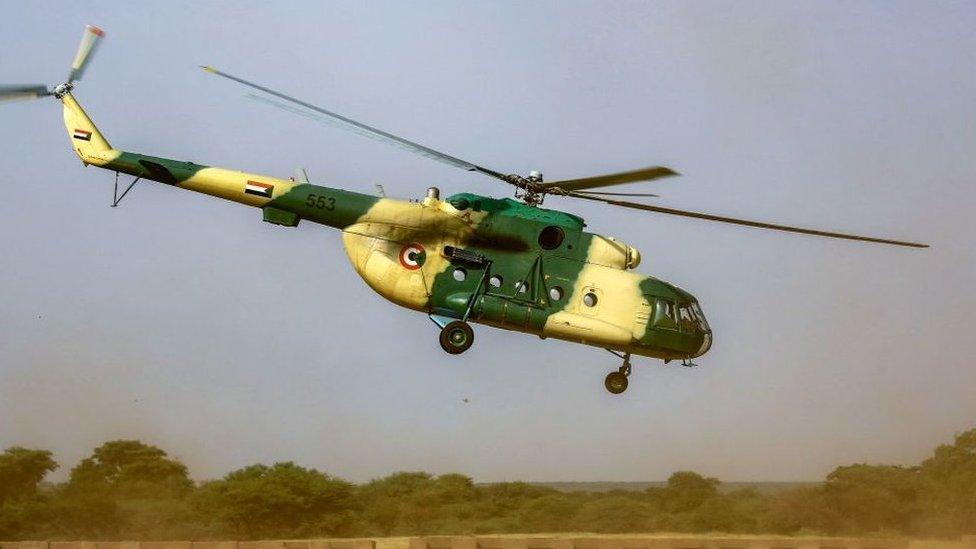Terrified Sudanese on the run from Arab militias in Darfur - again
- Published
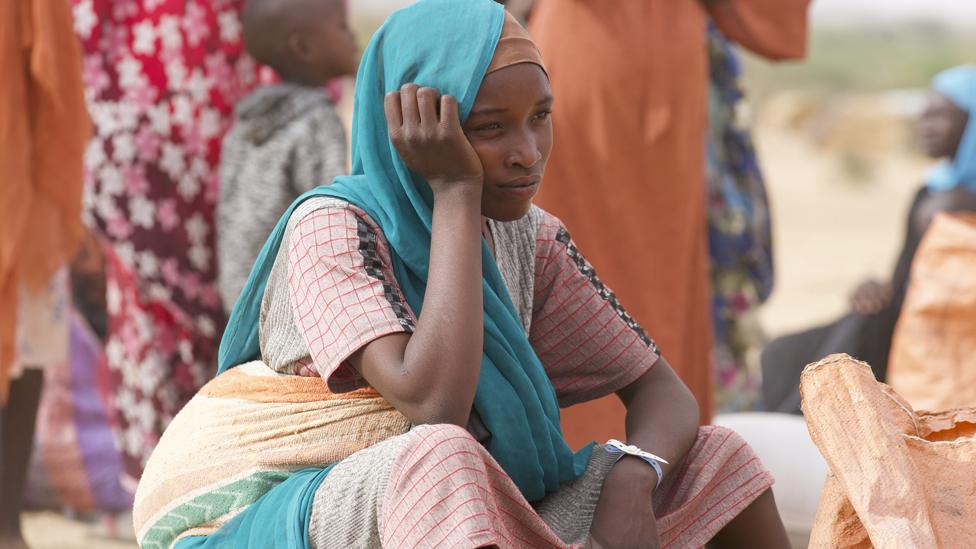
Fleeing for their lives from Arab militias on the rampage is nothing new for the Sudanese people escaping over the border into Chad - their exhausted faces encapsulate the devastation and suffering they have been experiencing over decades.
"We barely managed to return home and start a new life when this fighting forced us to run again," Mahmoud Adam Hamad tells the BBC.
The showdown that erupted on 15 April between Sudan's two leading generals has triggered another bout of ethnic conflict in Sudan's western Darfur region.
The UN estimates that more than 100,000 people have fled the current countrywide clashes, with the largest number fleeing to Chad, just across the border from Darfur.
Darfur has been in turmoil for years with violence between its various African and Arab communities.
When non-Arabs took up arms against the government in 2003, complaining about discrimination, the government retaliated by mobilising and arming mostly Arab militias. Known as the Janjaweed, they were accused of widespread atrocities.
Many of those Janjaweed fighters morphed into the Rapid Support Forces (RSF), the paramilitary group that is now battling the army.
Arab militias linked to the RSF appear to be taking advantage of the security vacuum in Darfur, unleashing violence that has led to an exodus of people from the region.
Some, like Mr Hamad and his family, have ended up in a temporary refugee camp in the Chadian village of Koufroune.
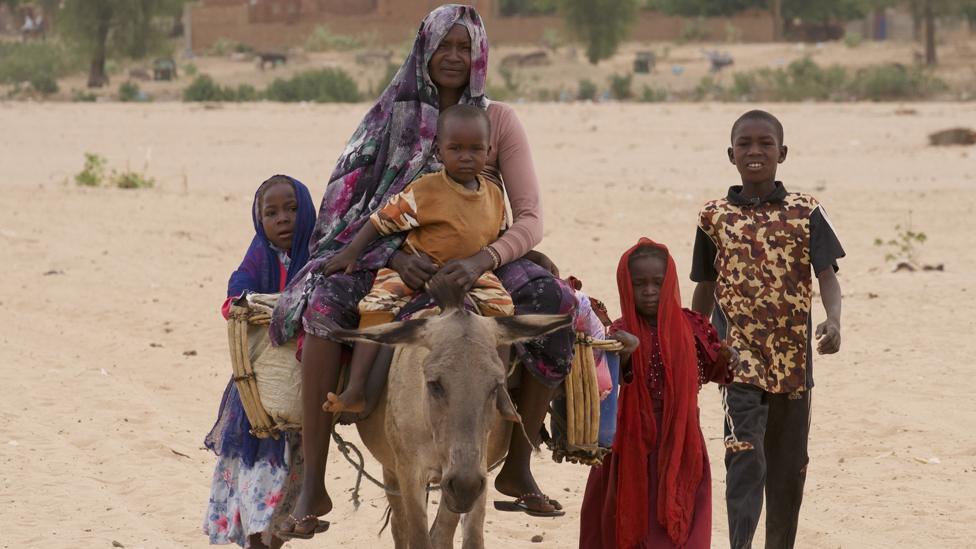
Families have come to Koufroune with a few belongings that they could bring from Darfur
An estimated 8,000 people are at the camp, having managed to flee with a few of their belongings and livestock, a valuable asset that could help ease the hardship.
Mr Hamad made two dangerous trips last week across the border to bring his two wives and eight children from Darfur.
"I made my journey mainly at night. I brought them in, moving from one location to another with my family until we arrived.
"I was nearly robbed on the second trip," he says as he stands next to his temporary shelter made up of sticks and plastic sheeting.
His village was previously attacked in Darfur. He lost his farm and animals and some of his relatives were killed by the Janjaweed.
"We were beaten and lashed. We begged them for our release."
Mr Hamad speaks about how, at the time, he fled from village to village and crossed into Chad.
He later returned to Darfur with his family thinking it was safe, but he now finds himself back again.
He is now earning a little money in the camp by using his cart to transport the belongings of other refugees. He uses the cash to buy extra food.
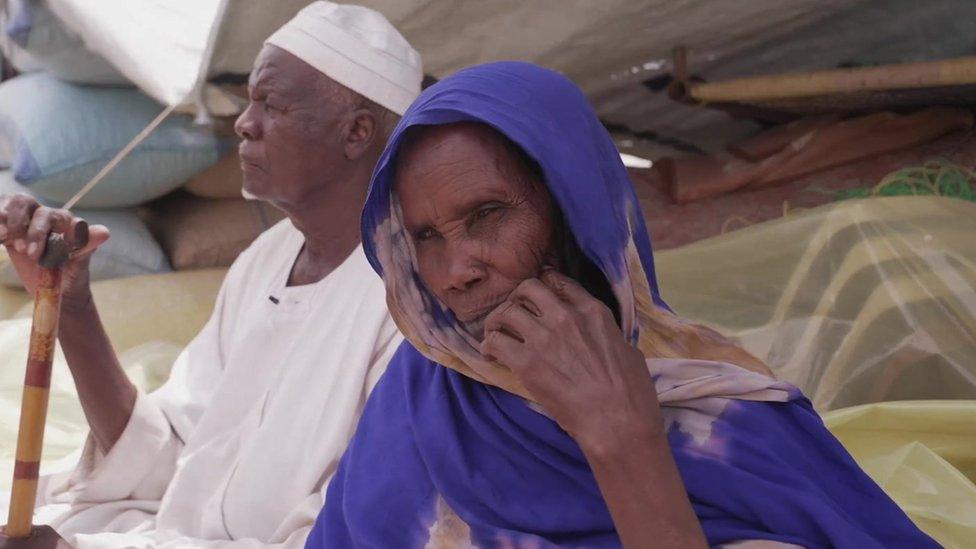
Ibrahim Bashar Ebra (L) and his wife Maka Naseem Tabeer (R) lost their farming livelihood at the start of the Darfur conflict in 2003
Ibrahim Bashar Ebra, 83 and his wife, Maka Naseem Tabeer, 70, sit in the shade of a plastic sheet flapping in the wind offering them some respite from the extreme heat.
They are surrounded by their belongings covered in blankets to protect them from the dust.
They lost their livelihoods in the Darfur conflict after their farm was raided in 2003 and their livestock were stolen.
In a later attack three of their children were kidnapped and they have no idea where they are.
"I became destitute without a home and totally dependent on others," Mr Ebra says.
What forced him to move a fortnight ago was a militia attack on his village that killed many people.
"The whole village was burned to the ground. I was evacuated by a cart and brought here," he adds, pointing out that arthritis makes it impossible for him to move on his own.
His wife turns to him and asks: "What do you think about our future from now on?"
"There's no government in Darfur, only the militias, who are killing, raping and kidnapping. Only God knows what there is in store for us," Mr Ebra responds.
He says he will "never" go back.
"I am safe here; I am happy fetching water from this valley to drink. What would I earn from going back? I am a frail 83 years old, but mentally tough."
For now, they are being looked after by UN agencies, including the World Food Programme (WFP).
Tens of thousands of more refugees are expected and there are fears that the fighting in Darfur could snowball into a full-blown conflict.
Chad already hosts more than a million displaced people, including nearly 400,000 Sudanese refugees from Darfur.
The race is now on to get support to the camps before the rainy season begins, WFP country director Pierre Honnorat says.
"This is very much needed because in a few weeks, the road to come and assist them will be very very difficult. That's really the issue, we have to have the resources to be able to support them," he tells the BBC.
The refugees in Koufroune may have reached safety, but like so many Sudanese their future lies in the hands of two generals fighting over their country.
They are under intense diplomatic pressure to negotiate an end to the conflict, or risk plunging Sudan into a civil war that could be worse than those in Libya and Syria.

- Published27 April 2023
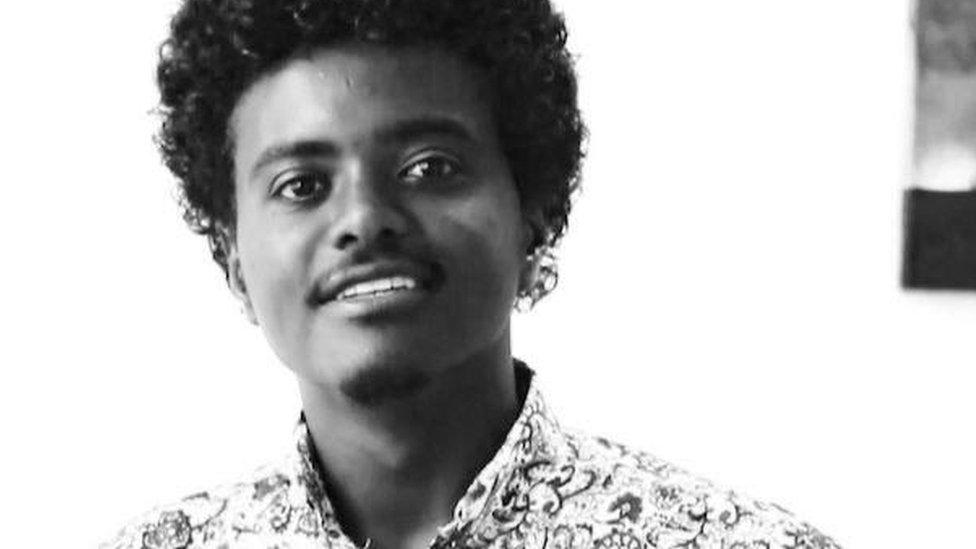
- Published1 May 2023
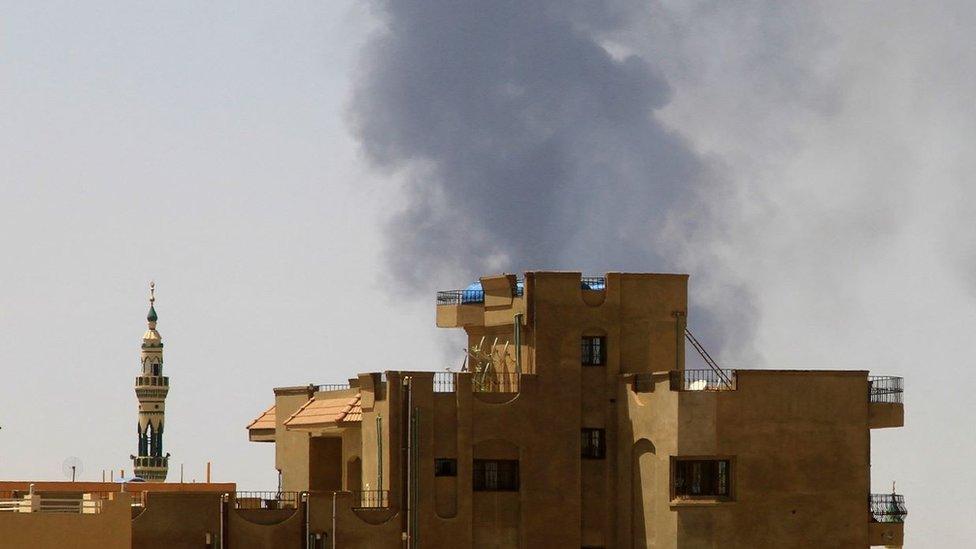
- Published1 May 2023
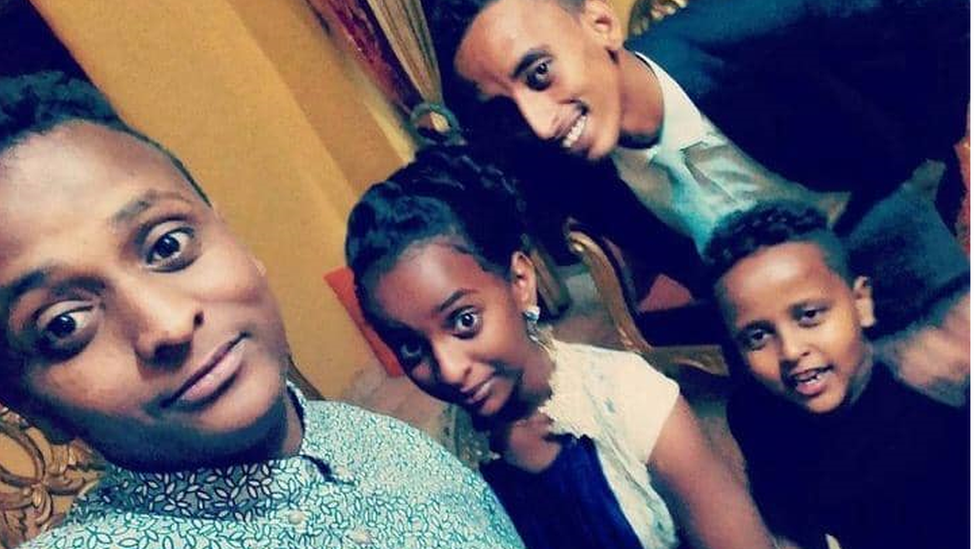
- Published24 April 2023

- Published17 April 2023
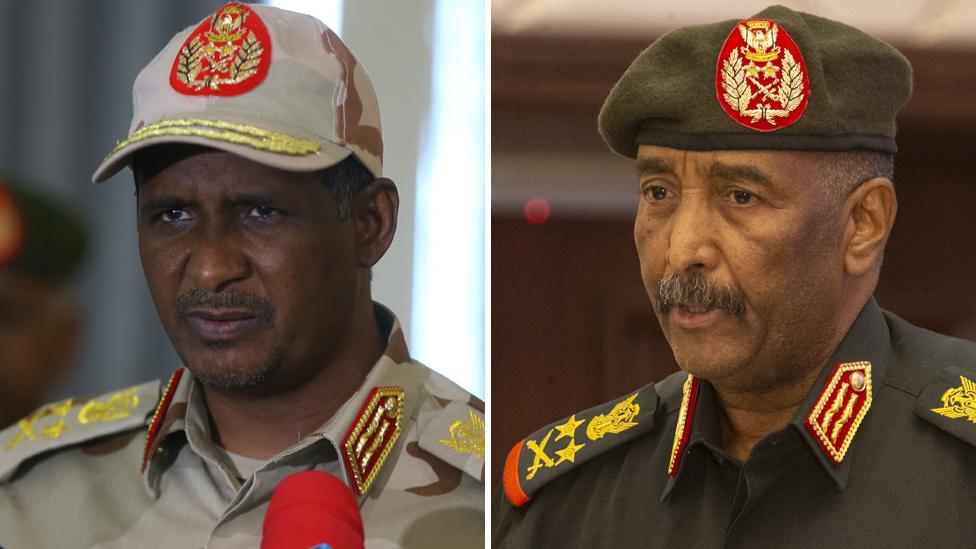
- Published20 April 2023
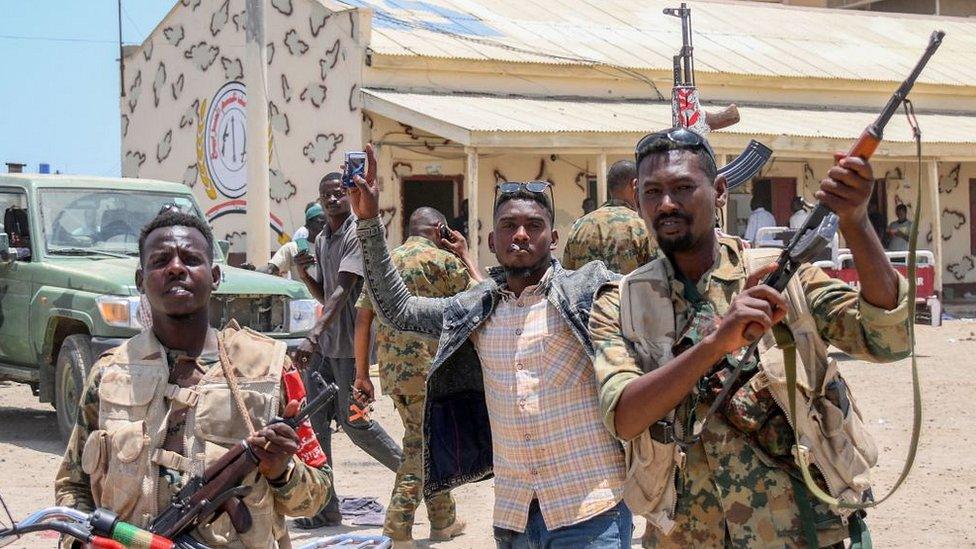
- Published27 April 2023
